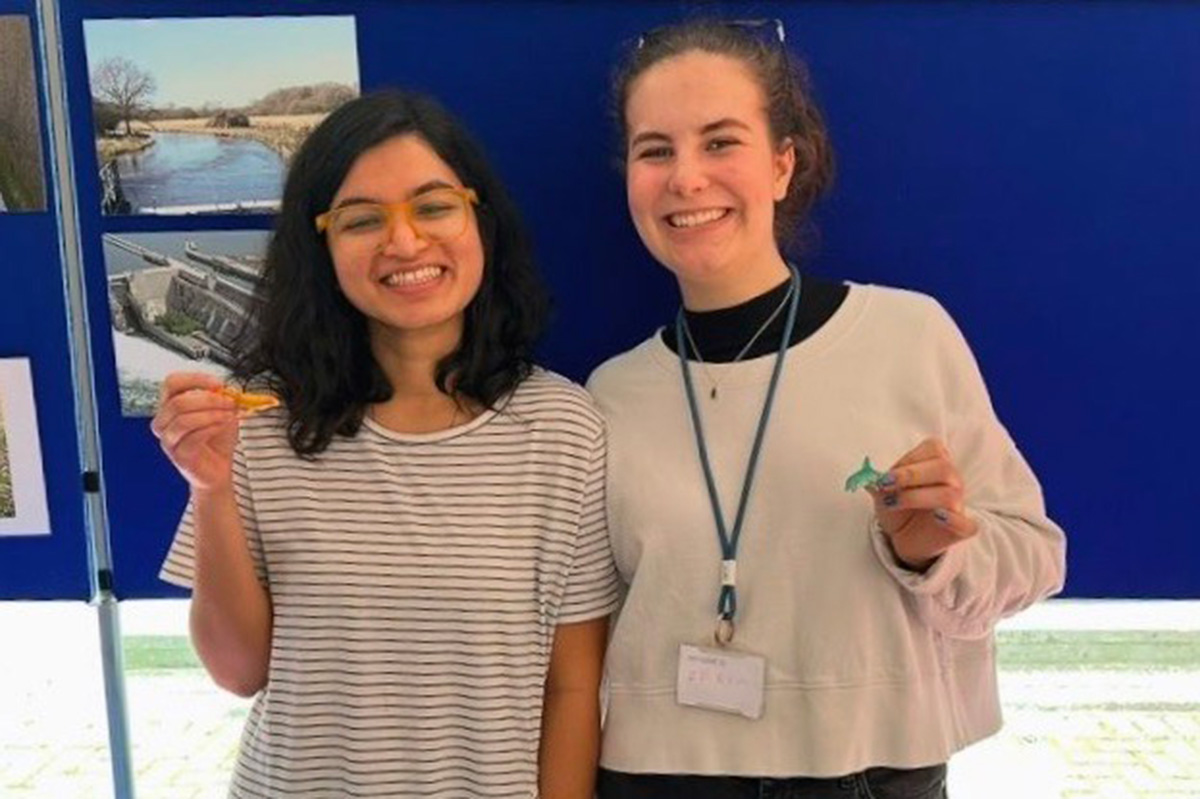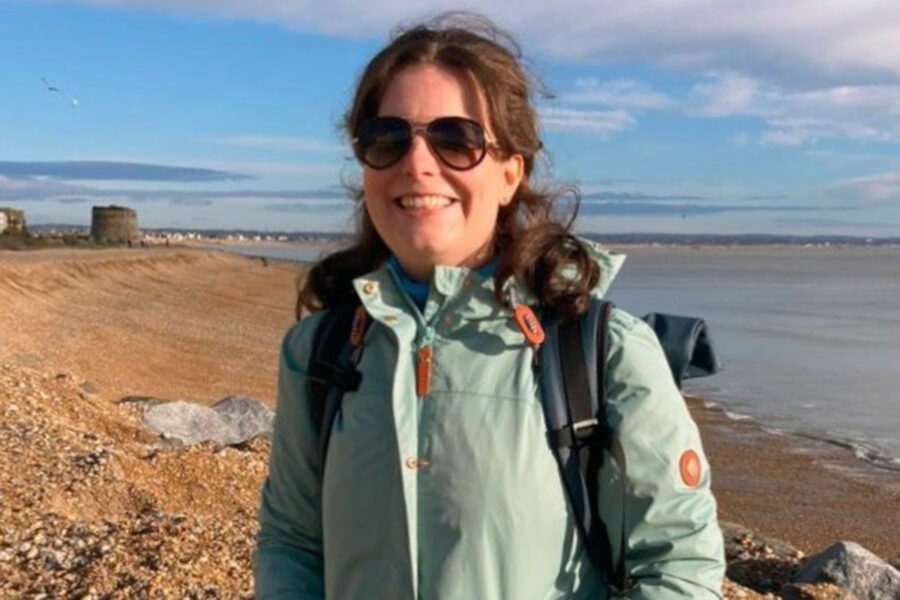“I don’t really view it as an industry – fishing is more like a community,” Freya Ivy Palmer, a PhD student at the University of Southampton, told Fishing News.
Hailing from landlocked Hertfordshire, working in marine research might not have been the most obvious of career choices. However, for Freya, it was family holidays by the sea that sowed the seeds of her future path.
“I started snorkelling and then progressed to scuba diving aged eight – and got a PADI licence when I was about 10 years old. That’s when I became obsessed with the ocean.”
Despite her passion for the marine environment, Freya chose to study chemistry at university. “Back then, it was a case of doing a subject I was good at. I then went on to get my master’s degree – but it came to a point where I was just sat in a laboratory. That’s when I realised chemistry wasn’t what I was passionate about. So I started looking for a marine-based PhD.”
Freya is now pursuing a doctorate on the topic ‘Protecting the marine environment: understanding how resource shocks could help enhance sustainability of marine fisheries’ – which brings her into direct contact with the catching sector.
“My first engagement with the fishing industry was at one of the Fishing into the Future F-REP events. I started my PhD in September, and the event was in November – so it was a bit of a baptism of fire to be in the room with all the fishermen, and representatives from Defra and the MMO. But it was the best thing ever, because I learnt so much – and I’ll always be grateful for that.”
With Freya often doing office-based work as well as sometimes taking to the road to survey fishermen at ports across the country as part of her research, there’s rarely a typical day.
“I’m based at the Southampton Science Park. I’m in an office with all types of people – we all do engineering to some degree. Technically, I’m doing environmental engineering. It’s a diverse group here – which is nice, and we all help each other out.
“One of the best things about the PhD is that it’s so flexible – so I run my own day. If I’m in the office, I try and get in for 9am. If I get Fishing News in that day, then I’ll spend the first part of the morning reading that!
“I then move on to updating my to-do list – and subsequently I might time-block my day accordingly. After that, I’ll check up on my emails, and begin reading and analysing various types of data and reports. I
may have meetings with my supervisors planned. I have quite a diverse team in that regard – and have supervisors for social science, computer science and environmental engineering.”
When it comes to arranging interviews with fishermen, Freya can call upon a burgeoning list of contacts. “I’ve built up a network of fishermen from events I’ve been to like the F-REP one. I see where somebody is based and then I’ll message them to see if they’re available for interview.
“That’s my process for choosing specific ports. I’m aware I have some gaps, which I’m aiming to fill – like the North West, which I haven’t been to. I’d love to go up that way – it’s just that I don’t know many people up there yet.”

Freya started her PhD last year, leaving her plenty of time to formulate the next steps in her career. “I’d love to do something that advocates
for the industry. Or something where I can try and get the industry into more conversations in academia, and involved in more outreach with the younger generation – as I’m doing here at a science and engineering festival.”
Once at a port or harbour, Freya’s first task is to simply observe, before moving on to interviewing. “I arrive and sit on the quay. I watch for a while, to see the dynamics of each port.
“Sometimes there will be people there who I know already – and I’ll have a pre-set time to meet them. It’s then normally a case of word of mouth. So straight after one interview, I might then go and speak to somebody else who’s been recommended.
“I have my standard pre-set questions – but I use a semi- structured approach, which means I’ll ask questions that I have listed, but if something comes up in conversation that’s of interest, I may expand on that. I also tailor each interview to how much time somebody has, as some people are in more of a rush than others.”
With a batch of interviews complete, it’s then a case of heading back to the office. “I record all my interviews ready to be transcribed. Currently, the main part of my day is transcribing the interviews I conducted last year – which takes quite a long time. After I’ve finished transcribing, I’ll then do my analysis and start writing up my findings.”
From research work in the office, to meeting fishermen at ports across the country, Freya is rapidly immersing herself in the industry. However, there’s one experience yet to be achieved.
“I’d love to go out on each type of vessel – and get that hands-on experience. That’s something which has come up in the interviews – some representatives from organisations, and industry- related academics, haven’t yet been out on a fishing boat. It would be great for me to actually have that experience.”
Freya’s Commercial Fisheries Social Survey can be accessed at: linktr.ee/freyaivypalmer
She can be contacted via email at: f.i.palmer@soton.ac.uk or by phone on: 07494 171398.
This story was taken from the latest issue of Fishing News. For more up-to-date and in-depth reports on the UK and Irish commercial fishing sector, subscribe to Fishing News here or buy the latest single issue for just £3.50 here.
Sign up to Fishing News’ FREE e-newsletter here.








